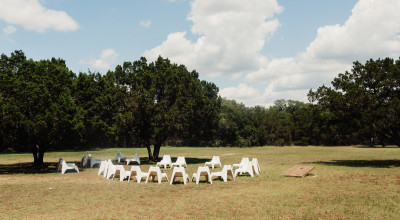What to Expect When You Leave Rehab
July 31st, 2023
Going to rehab can be one of the biggest decisions you can make, yet it is only the beginning of a lifetime journey. While choices about where to go to rehab are often made on the fly in the middle of a crisis, the decisions about what to do after can be made with a clearer mind and a little less pressure. This post will talk about some of the things to expect and the decisions that can be made to best meet the unique challenges that come with leaving rehab.
What You Can Expect
The first 60 days after rehab are statistically the hardest. It is during this roughly two-month stretch that people are the most vulnerable to relapse. This doesn’t mean that this time will always be awful, only that there are sure to be hurdles to overcome. Some of these include:
· Facing any wreckage that may have resulted from your addiction
· Feeling like everyone is watching you to see if there are any signs of slipping back into addictive behaviors
· Rebuilding trust, learning how to do the many little and big things that go into daily life while sober
· Navigating relationships, especially when they have been warped or even defined by the addiction
· Rebuilding finances
· Dealing with legal issues
· Being thrust back into responsibilities like work and childcare after some time of being able to focus only on self-knowledge and growth
· Figuring out how to fit recovery into daily life
It’s also important to see how much good can come out of this period. For instance, it can be a time of tremendous growth and revitalized self-image. Old relationships that seemed doomed can be brought back to life as recovery changes the dynamics. The most important of these is often the rebuilding of relationship with self. The time shortly after rehab offers a golden opportunity to see what once seemed impossible become possible, such as feeling useful in the world and being proud of yourself.
Big Decisions and How to Make Them
Coming out of rehab without a plan is equivalent to starting a football game without having any plays or getting onstage to play a concert without having rehearsed any songs. In the movies, this may seem heroic and lead to glorious improvisation, but in real life it usually ends in disaster. The winning strategy is to have as solid a plan as possible and follow it closely. This is usually known as a “discharge plan” and it’s never too early in the treatment process to start putting it together.
A a reputable rehab center, the staff will help. For instance, if you are a client at Windmill Wellness Ranch, both your primary therapist and your recovery coach will start discharge planning within the first few days of admission and then work with the you to build a list of meetings, appointments, and actions that can dramatically improve your chances of staying sober not only through the crucial months following rehab but also for a lifetime of ongoing recovery.
This illustrates an important point: don’t try to make the big decisions by yourself. Many of us have trouble accepting help or are afraid to ask for it, but this is a time to push through this internal resistance. This is because it’s easy to talk yourself out of good ideas and into bad ones, especially in early sobriety. Instead, let professionals and people who have been through these situations successfully be your guides.
A sample list of big decisions to make includes:
- Where to live (sober living will usually be better than living alone or returning to an unhealthy environment)
- What meetings to attend and how often (90 meetings in 90 days is a good start)
- Whether to engage in outpatient treatment (people who follow residential rehab with IOP usually fare better)
- What therapist to see after treatment (look for someone experienced with the issues of early recovery)
- How to rebuild relationships (consider couples/family therapy)
The Bottom Line
Everyone will have their own experience after rehab, and there is no one perfect set of actions, but there are some common moves that lead to better outcomes. One of the biggest of these is accepting help in making a solid discharge plan so you can meet the challenges that come after rehab.


